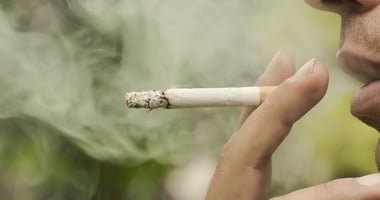Combination treatment with varenicline and bupropion proved more efficacious for smoking cessation...
Pharmacologic Augmentation Can Aid Smokers Who Fail to Quit After Nicotine Patch
 |
Researchers from Duke University's Department of Psychiatry and Behavioral Sciences followed 606 cigarette smokers who started open-label nicotine-patch treatment two weeks before an established quit date. Those whose smoking did not decrease by 50 percent or more after one week were randomly assigned to one of three double-blind treatments: nicotine patch alone (control condition), “rescue” treatment with bupropion augmentation of the patch, or rescue treatment with varenicline alone. Participants whose cigarette smoking decreased by more than 50 percent but who lapsed after the quit date were also randomly assigned to the rescue treatments or to nicotine patch alone.
The researchers found that smokers who did not respond adequately to pre-cessation nicotine patch benefited from bupropion augmentation—abstinence rates at end of treatment were 16 percent with the nicotine patch alone and 28 percent with bupropion augmentation. Switching to varenicline produced less robust effects, but abstinence at six months was 6.6 percent with the patch alone and 16.5 percent with a switch to varenicline. “The results of this study show that smokers who fail to respond adequately to pre-cessation nicotine patch treatment can benefit from being switched to alternative therapies,” the researchers said.
For more about smoking-cessation interventions, see Psychiatric News here. To read about research on a nicotine vaccine, click here.
(Image: Elena11/shutterstock.com)





